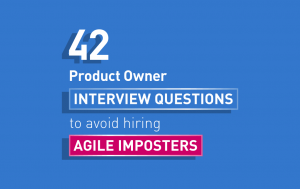
The sooner you retire, the less time you have to save for the golden years. The street smarts say: Avoid debt after you retire.
Even if you don’t plan to retire soon, younger workers still have time to save for their golden years. The wise word is: Do not get in debt when you retire. Many retirees have difficulty with this.
According to the Employee Benefit Research Institute’s “Spending in Retirement survey, feeling content and secure in retirement was related to having guaranteed income, low levels of debt, a strategy to spend their retirement savings, and retirement services provided by an employer. This includes advisory services.
Based on self-reported data, the survey divided respondents into five categories. The “struggling” group had lower assets, savings, and higher debts, including credit cards and medical bills. The lowest scores among respondents were also related to their life satisfaction and overall health.
Another study was published this year. It surveyed people from all walks of life and ages. 59% correlated financial health with lifestyle quality. 57% compared overall happiness to financial health. 55% compared financial health to overall satisfaction. 55% said that financial health and mental well-being are interconnected.
What’s your Debt Level?
Many millennial workers have many expenses. Older millennials may also want to save for college costs. Many Americans are facing this struggle. Many Americans are facing this struggle, even if they have the option to participate in an employer-sponsored retirement program.
CNBC conducted a survey of 1,000 millennials Make It and revealed that 23% of them are limiting their retirement contributions due to student loan payments.
Take Control of Your Future With Self-Directed Retirement Savings
A self-directed individual retirement account is a great way to build retirement savings. You don’t need to aim for financial independence. Instead, you can plan for it by investing in the other assets that are allowed by self-direction.
Imagine this: When you are 35 years old, you may own a condo or house. You can make the mortgage payments and see the end of your college loan payments in a few years. Your income is stable because you have worked your way up within your company or are an entrepreneur self-employed. You can cover your daily expenses and set aside money each month to contribute to your retirement plan.
Whether you’re familiar with real estate, private equity, or cryptocurrency, you are an expert in investing. This knowledge can be used to fund a self-directed retirement program. Then you can invest in non-traditional investments that are not allowed by a workplace retirement plan — the types of assets you already know and appreciate.
Investments Need Strategies in Retirement
As with all investment strategies, whether self-directed, with the advice of a financial advisor, or through brokerage, there is always a risk.
You may also find that the custodial and administrative fees for starting with small amounts of retirement funds can seem prohibitive compared to what you have. Tax benefits offset fees. Invested money gets tax benefits.
You should also be aware that prohibited transactions can cause tax problems for your retirement plan. Self-dealing is when you, the account owner, benefit directly from the asset, rather than the retirement plan which made it.
It also means that you should avoid transacting business with disqualified people. Internal Revenue Code Sections 4975 and 408 define a disqualified individual as the IRA holder, the IRA owners ascendants or descendants, and any entity controlled and managed by those individuals.
Certain types of transactions involving the IRA are not allowed to be conducted by disqualified persons. This is outlined in detail on the IRS Website.
Self-Direction and Debt Management
Alternative assets are less correlated to the stock market than the stock market. This gives investors more control. You have the opportunity to leverage these types of investments for a faster return as an investor. This depends on which kind of investment you choose. Liquidate or sell. You can withdraw those funds without penalty to repay your debt. This is once you have reached age 59 1/2.
If you aren’t eligible for distribution, you will likely delay paying down your debt and continue to reinvest the funds in new projects. This is a “trade up” method. However, instead of trading up, you are increasing the value of your investment by reinvesting earnings from an earlier investment in new deals that could increase your return. You can do this even after your debt is paid off.
Then, you can continue to save for retirement debt-free.
Self-directed retirement accounts offer a faster growth rate than traditional savings methods. This is especially true when it comes to managing debt. As a result, self-directed IRAs can help you improve your financial health. You can also build a larger retirement portfolio by self-directing for many years.
Business & Finance Articles on Business 2 Community
(26)






